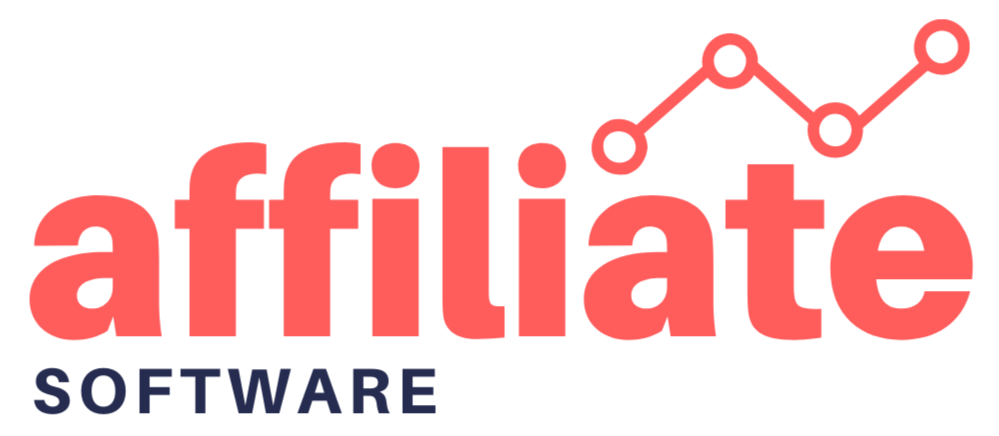Discover how to make your affiliate links GDPR compliant. I’ll guide you through the essentials of data protection and privacy laws in online marketing to ensure legal compliance.

GDPR Compliance in Affiliate Link Management: What You Need to Know
We manage affiliatesoftwareonline.com and deal with GDPR every day. Did you know GDPR can fine companies up to 4% of their yearly income for breaking the rules? This big data protection law from the European Union in 2018 affects affiliate marketers everywhere.
GDPR reaches far, applying to companies outside the EU if they handle EU residents’ data. As an affiliate marketer, following GDPR is key to keep your brand safe. We’ll cover the basics of GDPR in affiliate link management, from what it is to how to follow it.
At affiliatesoftwareonline.com, we keep up with data privacy laws. GDPR has changed how we handle customer data. It’s now important to get clear consent and keep data safe to follow GDPR.
Understanding GDPR and Its Relevance to Affiliate Marketing
The General Data Protection Regulation (GDPR) protects EU citizens’ privacy and personal data. It gives people more control over their info. It also sets strict rules for how data is collected, stored, and used.
Affiliate marketing uses data to sell products and tailor ads. If you work with EU data, you must follow GDPR. Not following it can cause big fines and harm your reputation.
The GDPR started in May 2018. It affects businesses that handle EU citizens’ data. It says you need to get clear consent before using their data. You also have to keep their data safe and tell them if there’s a breach.
GDPR and the California Consumer Privacy Act (CCPA) require clear data use explanations. You must tell users what data you collect and how you use it. You also need to let them opt out.
You need strong security to protect data. This includes encryption and access controls. GDPR and CCPA also give users rights to see, change, and delete their data. You must help users with these rights.
GDPR and CCPA focus on being open, getting consent, and protecting privacy. This can lead to better relationships and experiences. But, the rules on tracking might make it hard to measure success, affecting your earnings.
Key GDPR Requirements for Affiliate Link Management
The General Data Protection Regulation (GDPR) has important rules for businesses, like affiliate marketers. Following these rules helps avoid legal trouble and keeps customers trusting online.
Getting clear consent from people is a big part of GDPR. Affiliate marketers need to make sure users know how their info is used. They also need to let users stop sharing their info anytime.
Being open about how data is used is also key. Affiliate marketers must have detailed privacy policies. These policies help users understand their rights and make choices about their data.
GDPR also gives people certain rights, like seeing, changing, or deleting their data. Affiliate marketers must be ready to handle these requests quickly and show they follow the rules.
GDPR also requires plans for when data is leaked. If a leak happens, affiliate marketers must tell the right people and those affected fast. This helps lessen the damage.
By following GDPR rules, affiliate marketers can avoid legal and trust issues. Making sure affiliate link management follows is key to a safe and responsible online world.
| GDPR Requirement | Description |
|---|---|
| Obtain Explicit Consent | Data subjects must provide clear, affirmative consent for data collection and processing. |
| Ensure Transparency | Maintain comprehensive privacy policies that outline data processing activities. |
| Respect Data Subject Rights | Allow users to access, rectify, and erase their personal data upon request. |
| Establish Data Breach Protocols | Notify authorities and affected individuals in the event of a data breach. |
Obtaining Explicit Consent for Data Collection
To follow GDPR rules in affiliate marketing, you must get clear consent from your audience. The General Data Protection Regulation (GDPR) says consent must be clear, specific, and given freely. Users must choose to share their data by opting in.
Affiliate marketers need to manage consent well to meet GDPR. This means having clear privacy policies and using opt-in boxes or forms. It’s also important to let users stop sharing their data anytime. By focusing on data transparency, you can earn your audience’s trust and keep up with privacy laws.
- Get explicit consent with clear, informed, and specific opt-in methods, like checkboxes or forms.
- Make sure consent is freely given and not mixed with other terms.
- Have easy-to-understand privacy policies that explain how data will be used and protected.
- Let users stop sharing their data anytime and make it easy to do so.
- Keep detailed records of consent to show you follow GDPR.
By focusing on GDPR consent, data collection, and data transparency, you can gain your audience’s trust. This helps your business succeed in the digital world. Use strong opt-in strategies and keep your data privacy communication clear.
Data Security and GDPR Compliant Affiliate Links
As an affiliate marketer, keeping data safe is key for following GDPR rules. The General Data Protection Regulation (GDPR) makes protecting personal info very important. This rule applies to the data you collect and manage through your affiliate work.
To meet these standards, you need strong security steps. This means using safe servers, encryption, and checking for security issues often. This keeps your customers’ and affiliates’ data safe.
Also, GDPR says you must have a plan ready for data breaches. You need to tell the right people and those affected quickly. This helps keep trust and keeps you legal.
By focusing on data safety and following GDPR rules, you protect your affiliate links. You also show you care about managing data well.
Remember, GDPR is complex and keeps changing. So, it’s very important to keep up and be flexible in the affiliate world.
Minimizing Data Collection for GDPR Compliance
As an affiliate marketer, following the General Data Protection Regulation (GDPR) is key. It helps keep your audience’s trust. The GDPR focuses on collecting only what’s needed for your purpose. This protects privacy by gathering less personal info.
To meet GDPR’s data minimization rules, check your data collection. A detailed data audit can show where you can cut down on personal data. This makes your GDPR compliance better.
The GDPR says personal info must be used for clear, specific reasons. It can’t be used in ways that go against those reasons. By using less data, you lower the chance of data breaches. You also make it easier to handle customer requests and build trust.
Here are some ways to cut down on data collection for GDPR:
- Find out what personal data you collect and if it’s really needed for your work.
- Remove any extra data fields or forms that don’t collect what you need.
- Set data retention policies to keep personal data only as long as needed.
- Keep checking and updating your data collection to stay in line with GDPR.
By focusing on data minimization, you show you care about your customers’ privacy. This builds stronger, more trusting relationships with your audience.
Building Consumer Trust Through GDPR Compliance
As an affiliate marketer, building trust with consumers is key. When people trust that their data is safe, they’re more likely to interact with my content. GDPR compliance shows I value and protect their information.
Following data privacy laws like GDPR keeps user data safe. This builds trust with my audience. A McKinsey survey found that healthcare and financial services, known for strict data protection, have the highest trust scores at 44%.
By showing I follow GDPR, I stand out from competitors. This can give me a marketing edge in the affiliate world.
Being open about how I collect data is crucial. GDPR requires me to be clear and fair about it. Sharing my relationship with merchants and following advertising rules shows I’m committed to ethical marketing.
GDPR compliance is more than a legal rule; it’s a way to build lasting trust with my audience. By focusing on data protection and being open, I can gain a loyal customer base. This leads to marketing benefits as a trusted affiliate partner.
| Statistic | Relevance |
|---|---|
| 87% of respondents said they would not do business with a company if they had concerns about its security practices. | GDPR compliance shows I’m serious about data security, which is key for trust. |
| 71% stated they would stop doing business with a company if it gave away sensitive data without permission. | Being clear about how I handle data, as GDPR requires, helps keep customers and their trust. |
| Only about 10% of consumer respondents trust consumer-packaged-goods or media and entertainment companies. | Affiliate marketers in these sectors can use GDPR compliance to stand out and gain more trust. |
Navigating the Affiliate Marketing Ecosystem Post-GDPR
The General Data Protection Regulation (GDPR) affects more than just your site. As an affiliate, you must check if the networks and advertisers you work with follow GDPR. They handle user data, and any mistakes can lead to legal and financial problems.
In the post-GDPR world, clear talks and contracts are key. Make sure the networks you’re with have strong GDPR rules. Also, check how advertisers handle data to avoid GDPR issues.
Keeping your audience’s trust is vital in the GDPR era. Being open and making sure everyone follows GDPR rules helps. This way, you avoid big fines or damage to your reputation.
GDPR is not just a one-time thing. It’s an ongoing effort that needs constant attention and knowledge of new rules. By being proactive in protecting user data, you can work confidently in the affiliate world. This builds strong, lasting relationships with your partners and customers.
The affiliate world is bigger than just your site. GDPR is a team effort, including networks and advertisers. With clear talks, contracts, and good data handling, you can move forward with confidence. This builds trust with your audience.
Practical Steps for Ensuring GDPR Compliance
To follow GDPR in affiliate marketing, you need a solid plan. First, do a data audit. This checks what personal data you collect, how it’s stored, and what you do with it. It shows where you stand and what needs work.
Then, make sure your consent forms are clear and easy to understand. People should be able to choose to opt-in easily. Being open about how you use data is important. Let users control their data preferences.
It’s crucial to train your team on GDPR. Teach them about data protection and their role in keeping it safe. Also, make sure third-party providers follow GDPR by signing Data Processing Agreements with them.
Keep checking your practices and policies to stay compliant. Watch for new rules and change your ways if needed. This helps avoid big fines and keeps your reputation strong.
| Step | Description |
|---|---|
| Data Audit | Identify personal data collected, storage methods, and usage |
| Consent Forms | Ensure clear, concise, and active opt-in mechanisms |
| Employee Training | Educate team on GDPR principles and best practices |
| Data Processing Agreements | Establish agreements with third-party service providers |
| Compliance Reviews | Regularly assess and update GDPR compliance measures |
By taking these steps, you can make sure your affiliate marketing is GDPR compliant. This builds trust with your customers and helps you avoid big fines.
The Future of Data Protection and Marketing
As an affiliate marketer, you must keep up with changing data protection rules. The General Data Protection Regulation (GDPR) has led to new laws worldwide. For example, the California Consumer Privacy Act (CCPA) in the U.S. is similar.
It’s key to watch these laws closely and see how they affect your marketing plans. New tech like AI and machine learning can help manage and protect data. This way, you can still personalize your marketing while keeping user privacy.
Using strategies like personalization and anonymized data can help you market well while respecting privacy. By using these tech solutions, you’ll not only follow the rules but also gain your audience’s trust. This can lead to long-term success in affiliate marketing.
The need for data protection and responsible marketing will keep growing. By staying updated, using new tech, and focusing on privacy, you can make your affiliate marketing business thrive in the future.
GDPR Compliant Affiliate Links and Strategies
After GDPR, affiliate marketers need to change how they work. They should focus on quality over quantity. This means working with a smaller group of people who really want to hear from you.
Content-driven marketing fits well with GDPR. It’s about sharing useful info and building relationships first. This shows you care about privacy and builds trust with your customers.
- Get clear consent from users before using their personal data.
- Use strong security like encryption to protect user info.
- Choose content-driven marketing to build trust and add value.
- Keep checking your data practices to stay GDPR compliant.
Using GDPR compliant affiliate marketing can make your brand more trustworthy. It’s a smart way to stay legal and stand out in the affiliate world.
Conclusion
As I explore the world of affiliate marketing, GDPR compliance is key. It helps me follow the law and build trust with my audience. This is crucial for my success.
By focusing on data protection and privacy, I’ve built stronger bonds with my customers. I use clear consent and manage data responsibly. This makes my business a trusted partner in digital marketing.
At first, GDPR compliance can be tough. But it’s worth it for the long-term benefits. It helps me avoid penalties and opens up new chances for growth. This is how I stay ahead in digital marketing.


Leave a Comment